NFL Free Agency 2024: Texans Are Winners, Panthers Are Losers After Week 1

With the first week of NFL free agency in the books, let’s assess which teams got better or worse by declaring winners and losers.
Yes, the Carolina Panthers will again be on the losing side. That’s not a spoiler. (You know the franchise is in bad shape when local celebrities are questioning the direction of the organization.)
But, hey, at least the Panthers got something in return for trading Brian Burns to the New York Giants. The Minnesota Vikings lost Kirk Cousins for nothing in free agency and were left scrambling for a starting quarterback. The Vikings, however, prepared for the outcome of losing their star player (take notes, Panthers) and quickly landed Sam Darnold and an extra first-round pick for the 2024 draft.
Unlike the Dallas Cowboys, the Philadelphia Eagles and Washington Commanders have had a busy free agency. But only one of the two NFC East teams were mentioned in the winner’s category.
Let’s not waste more time because plenty occurred last week. Here are the winners and losers from the first wave of free agency.
Winners
Texans take advantage of C.J. Stroud’s rookie contract
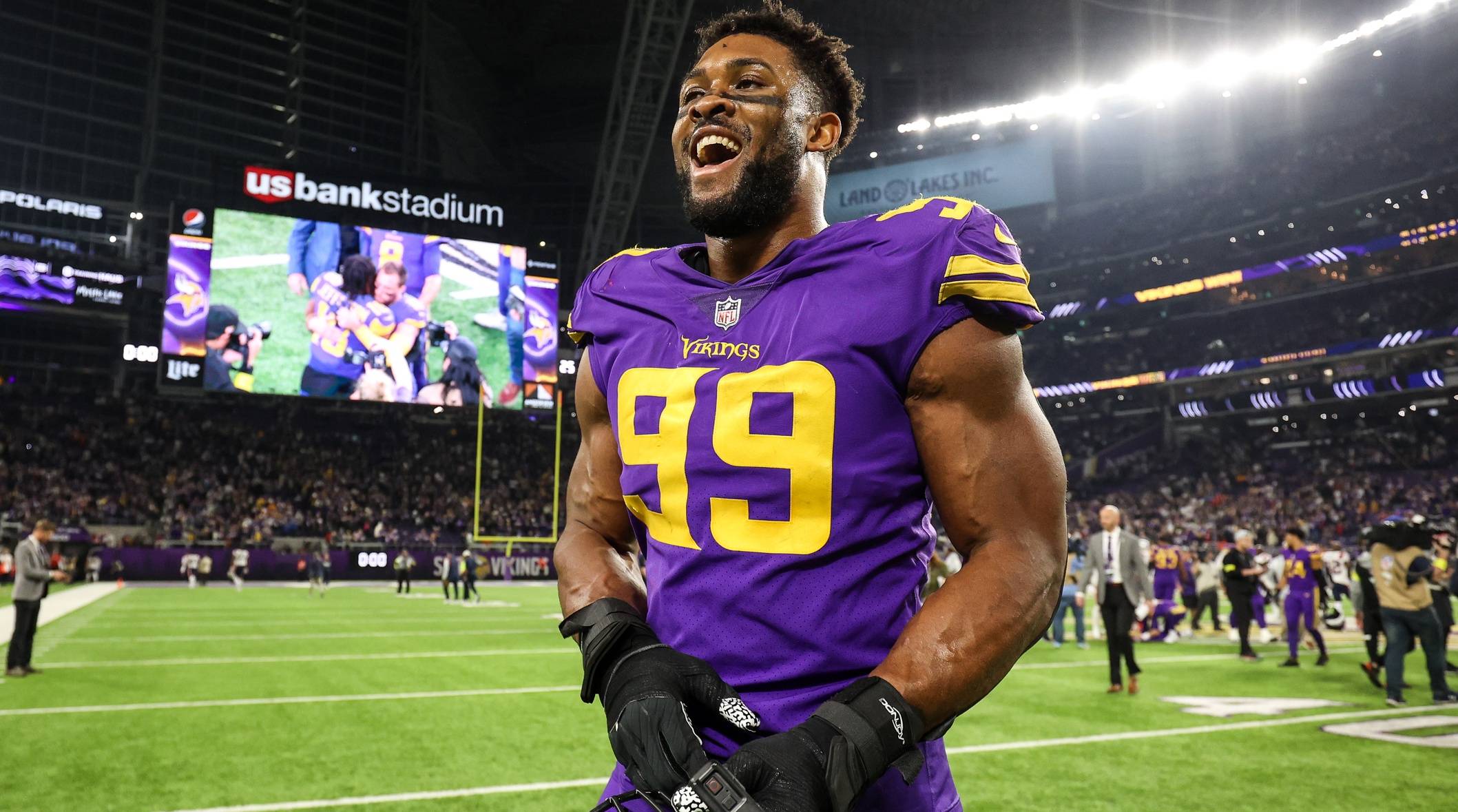
The edge rusher swap that wasn’t a trade between the Houston Texans and Vikings defined the difference in situations each team has this offseason.
Some Texans fans might have been upset to see Jonathan Greenard leave for the Vikings—he got four years, $76 million. But a day later, the Texans upgraded, signing Danielle Hunter to a two-year, $49 million deal, including $48 million guaranteed. I say upgrade because he’s a proven player who’s ready to help a team win a Super Bowl now, which is a realistic goal in Houston because of DeMeco Ryans and C.J. Stroud. The Texans quickly realized they needed to be aggressive because of the window they have with Stroud’s rookie contract. Ask the Buffalo Bills, San Diego Chargers and Cincinnati Bengals how important it is to maximize these rookie contract years before the bill comes due on the star quarterback.
If the Texans paid Greenard, who’s three years younger than Hunter, they would have needed to commit beyond two years, even though Greenard has had only one dominant season since being drafted in 2020. The Texans know what they have with Hunter and it could do wonders for Will Anderson Jr.’s second season in Houston. Ryans’s defense also gained Azeez Al-Shaair and Denico Autry last week.
The trade for Joe Mixon and the re-signing of Dalton Schultz will benefit Stroud and make the Texans a strong contender in the AFC. But I’m not ready to say they’ll dethrone the Kansas City Chiefs in the conference. Let’s wait for the NFL draft before forming the list of teams that could surpass K.C.
Falcons add weapons after Cousins signing
The more signings the Atlanta Falcons make, the more I like the Kirk Cousins move to Atlanta.
After signing Cousins (four years, $180 million), the Falcons quickly added depth and speed to a receiving corps that desperately needed those two attributes. The issues weren’t as noticeable last year because the Falcons had a dreadful passing attack with Desmond Ridder and Taylor Heinicke—they often failed to get the ball to an open Drake London.
Cousins will hit his receivers and now has more weapons beyond London, Kyle Pitts and Bijan Robinson out of the backfield. The Falcons flipped Ridder to the Cardinals in exchange for wide receiver Rondale Moore and added former 49er Ray-Ray McCloud III, who could also help on special teams.
New coach Raheem Morris has already addressed two needs that ultimately doomed Arthur Smith during three seasons in Atlanta. The Falcons now have a franchise quarterback and plenty of depth at wide receiver.
Jacksonville Jaguars … for not paying Calvin Ridley
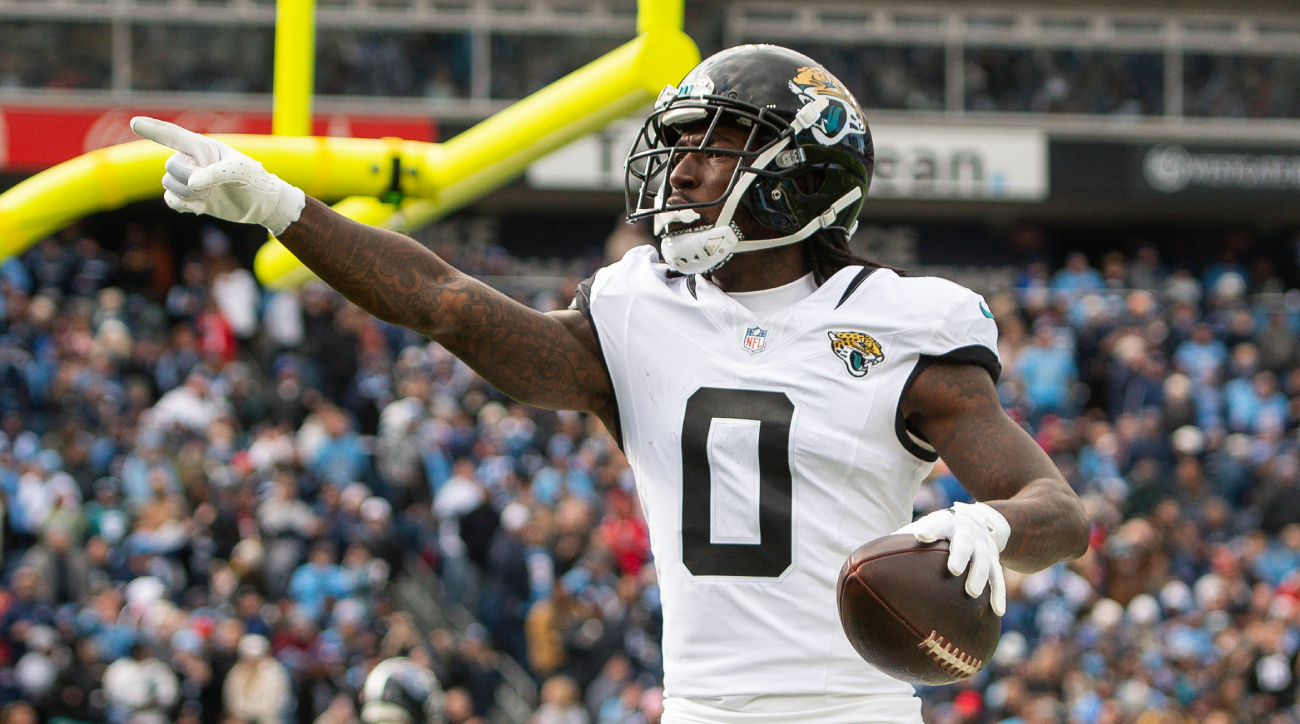
The Jacksonville Jaguars made a few questionable decisions in free agency such as paying wide receiver Gabe Davis $39 million over three years. But at least they didn’t overspend on Calvin Ridley, who signed a massive four-year, $92 million deal with $50 million guaranteed to join the Tennessee Titans.
The loss of Ridley stings, but at least the Jaguars won’t be asking themselves in a year or two why they committed so much money to a player on the wrong side of 30 and with only two 1,000-yard seasons in his career.
Perhaps Ridley is worth the money and does well with Will Levis in Tennessee, but often the team that doesn’t overspend ends up being the true winner in the long run. The Jaguars can fill Ridley’s void by drafting a wide receiver to go with Davis and Christian Kirk.
As for the Titans, you won’t find them in the losers’ section of this story. They have had a strong free agency with the acquisitions of running back Tony Pollard, center Lloyd Cushenberry and cornerback Chidobe Awuzie.
Commanders’ smart, underrated signings
The Commanders appear to be the bad team that spends an absurd amount of money in free agency because the roster is filled with holes.
But they’re not spending just to spend. These are savvy bargain moves on players with upside. Edge rusher Dorance Armstrong (three years, worth up to $45 million) isn’t a household name, but he often made the most of his opportunities playing behind Micah Parsons and DeMarcus Lawrence in Dallas. It wouldn’t be surprising if Armstrong, 26, is as good as Greenard and Bryce Huff, two ascending edge rushers who got paid more last week.
The other Washington signings were cheaper than Armstrong, moves that could benefit the incoming rookie quarterback and a defense that needs plenty of help.
Here are the notable signings: Running back Austin Ekeler (two years, $11.43 million), guard Nick Allegretti (three years, $16 million), center Tyler Biadasz (three years, $30 million), edge rusher Clelin Ferrell (one year, $3.75 million), linebacker Bobby Wagner (one year, $6 million in guarantees), linebacker Frankie Luvu (three years, $36 million) and safety Jeremy Chinn (one year, $4.1 million).
It’s a new era in the nation’s capital.
Lions address defensive issues
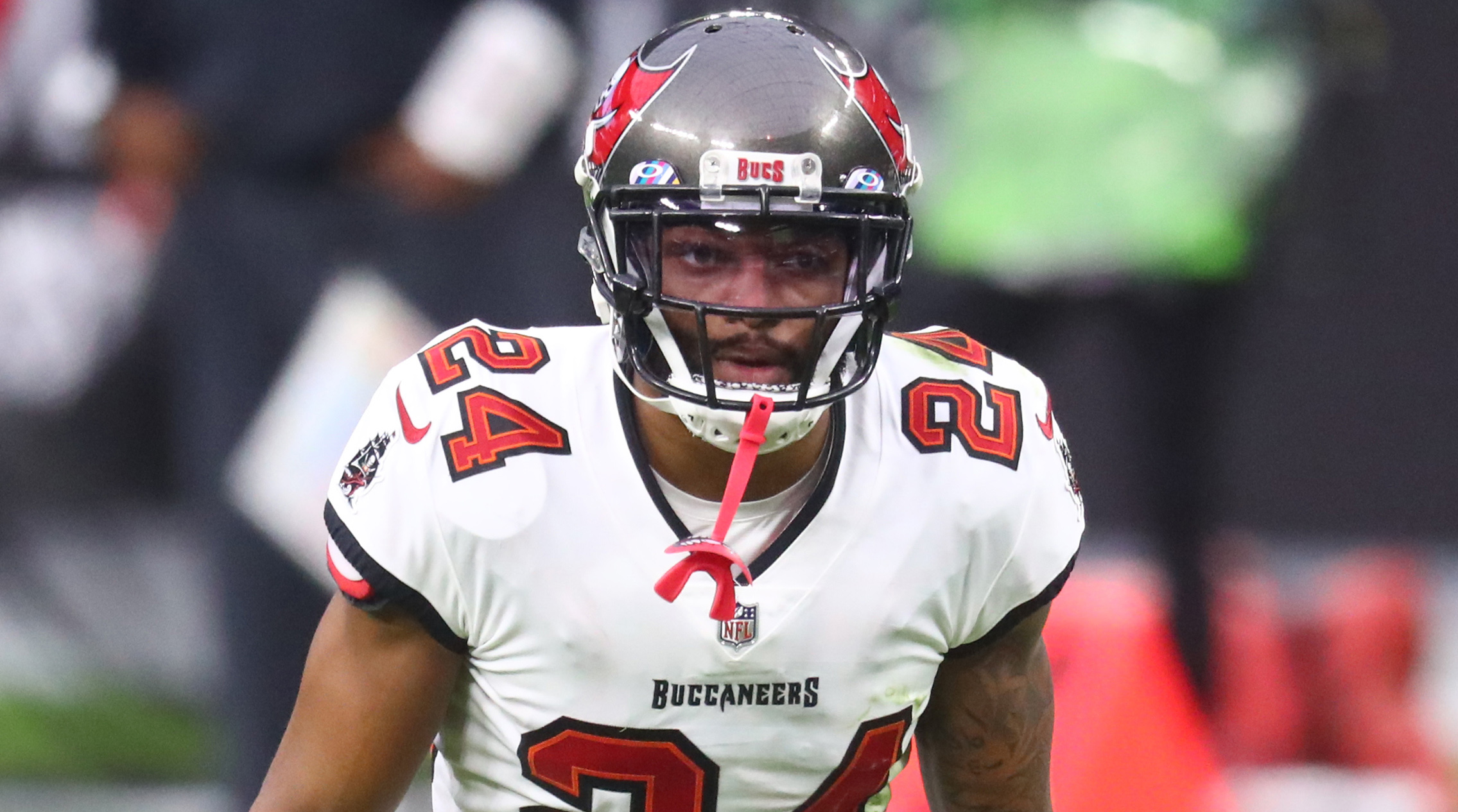
Speaking of new eras, the Detroit Lions are Super Bowl contenders and they’re acting like it.
The Lions haven’t gotten complacent after their run to the NFC title game, addressing holes on their defense. They didn’t get much return from last year’s notable signings of defensive backs Cameron Sutton, Emmanuel Moseley and C.J. Gardner-Johnson, who left to re-join the Philadelphia Eagles.
Sutton and Moseley, who re-signed on a one-year extension, will be competing for snaps with the arrival of Carlton Davis III, who was traded to Detroit by the Tampa Bay Buccaneers. The Lions also added a versatile defensive back in Amik Robertson, a slot cornerback for the Las Vegas Raiders last season.
But the improvements weren’t just in the back end of the defense. Defensive tackle D.J. Reader and edge rusher Marcus Davenport joined a front featuring Aidan Hutchinson and Alim McNeill. With an improved defense, the Lions might have a strong case for having one of the best rosters in the NFL.
Vikings begin post-Cousins plan, land extra first-round pick
The Vikings had a concerning quarterback dilemma after they lost Cousins to the Falcons in free agency. It seemed the Vikings were going to roll into the 2024 season with Darnold as the starting quarterback. That’s why many tweets and columns were published about the possibility of Justin Jefferson asking for a trade.
The Vikings weren’t going to trade Jefferson, regardless of the post-Cousins plan this season. But now it appears the Vikings might know what they’re doing at quarterback, a plan that could make the soon-to-be highest-paid wide receiver happy. Minnesota acquired an extra first-round pick in next month’s draft after sending Houston second-round picks this year and next along with a sixth-rounder (No. 188) in 2024.
Now the Vikings are armed with the Nos. 11 and 23 picks to possibly move into the top five of the draft. Not sure if that would be enough to crack the top three because the Bears, Commanders and Patriots seem set on selecting a quarterback. But that could be enough to take the Chargers’ No. 5 pick and possibly select Michigan’s J.J. McCarthy.
An intriguing first-round quarterback paired with a bridge quarterback in Darnold would put the Vikings on a fast track to moving on from Cousins. The team could also have a dominant defense in 2024, putting less pressure on Darnold and the to-be-determined rookie signal-caller.
The Vikings added Greenard, Andrew Van Ginkel and Blake Cashman to Brian Flores’s defense. The offense will welcome former Packers running back Aaron Jones to play with Jefferson, Jordan Addison and tight end T.J. Hockenson.
Losers
Panthers with more head-scratching decisions
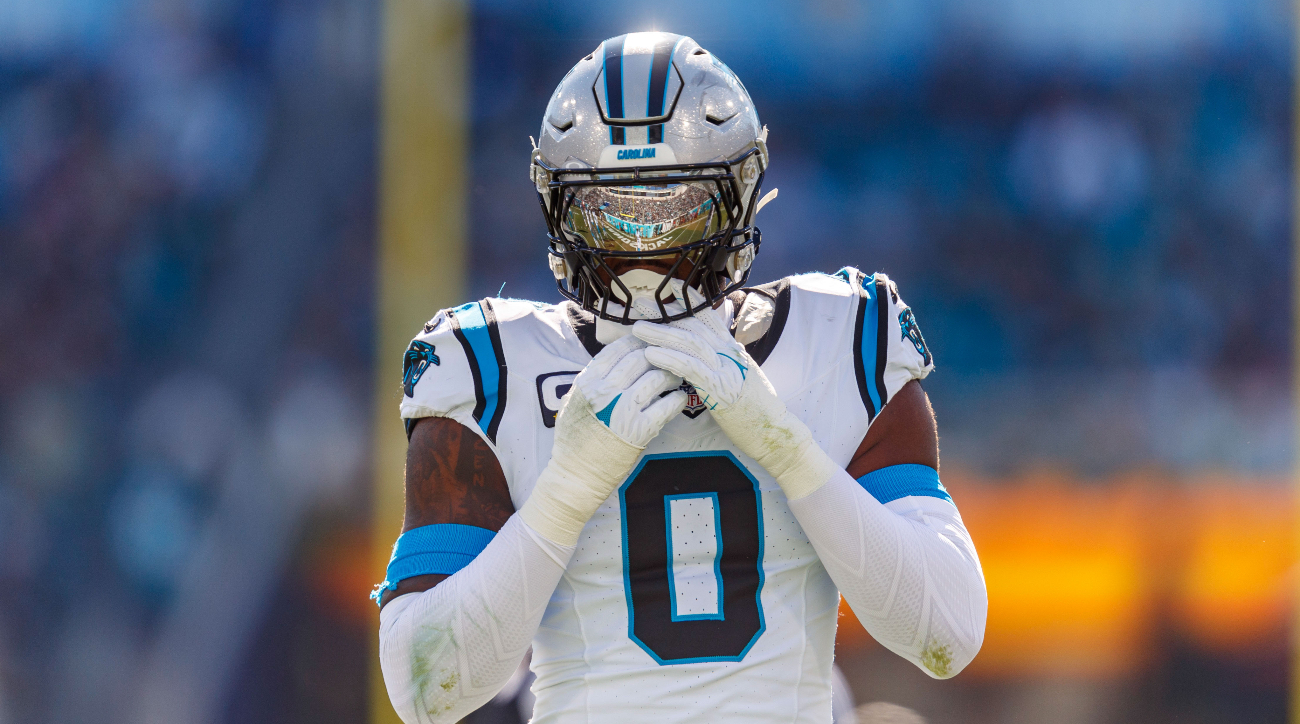
Country music star Luke Combs should start his own Panthers blog because he had solid analysis of the team’s decision to trade Burns to the Giants.
“What are we doing?” Combs wrote with several question marks and exclamation points. “No first-round pick for (Christian) McCaffrey a few years back and now none for Burns?”
Fair questions, especially when the Panthers were offered two first-round picks from the Rams for Burns back in October 2022. The team also passed on trading Burns at the ’23 trade deadline before sending him to the Giants for second- and fifth-round picks.
That’s just poor planning all around and indecisiveness from the organization. It’s understandable that the Panthers didn’t want to commit $150 million to Burns, but that’s a scenario that should have been discussed in October when his value was much higher.
Eagles’ risky splash moves
I’m a bit hesitant to criticize the Eagles’ free agency moves because they found a way to retain edge rusher Josh Sweat and now won’t have as many question marks on defense. But the Eagles took too many risks and overpaid for players that don’t play linebacker or cornerback.
I get the thinking, though. Younger players from the draft are often the best way to repair a position of need. So the Eagles, coming off a second-half collapse to a season that started 10–1, could end up finding draft gems to improve the defense and might get a few picks if they trade edge rusher Haason Reddick.
But if the Eagles had thoughts of bringing back Sweat on a restructured deal, there was no need to splurge on the signing of Bryce Huff, who agreed to a three-year, $51.1 million contract. The Eagles already spent a 2023 first-round pick on Nolan Smith. And, yes, maybe Smith isn’t ready to be a full-time starter after a quiet rookie season, but the Eagles got bold betting on Huff, a rotational player for the Jets last season.
Perhaps the Eagles would have been better off paying linebacker Patrick Queen and sticking with the edge rushers they already had. Instead, the Eagles took another gamble on linebacker Devin White, who lost his starting job last season in Tampa. White hasn’t played at a Pro Bowl level since ’21 and ended up getting a one-year, $7.5 million deal from the Eagles.
As for the Saquon Barkley signing of three years, $37.75 million, the team invested too much in a running back who has struggled with injuries and hasn’t made a dominant impact on the field the past few seasons. But, then again, he was playing with the Giants, who had shaky quarterback play from Daniel Jones and a lackluster group of pass catchers.
Barkley could shine in the Eagles’ offense, but similar to the Huff signing, that money could have been spent on linebackers and defensive backs. There’s also risk with the Eagles trading for quarterback Kenny Pickett, but at least he’s not being counted on to be a starter. Somehow the Pickett addition makes the most sense from the many signings the Eagles have had the past seven days.
Bears mishandle Justin Fields’s development, trade
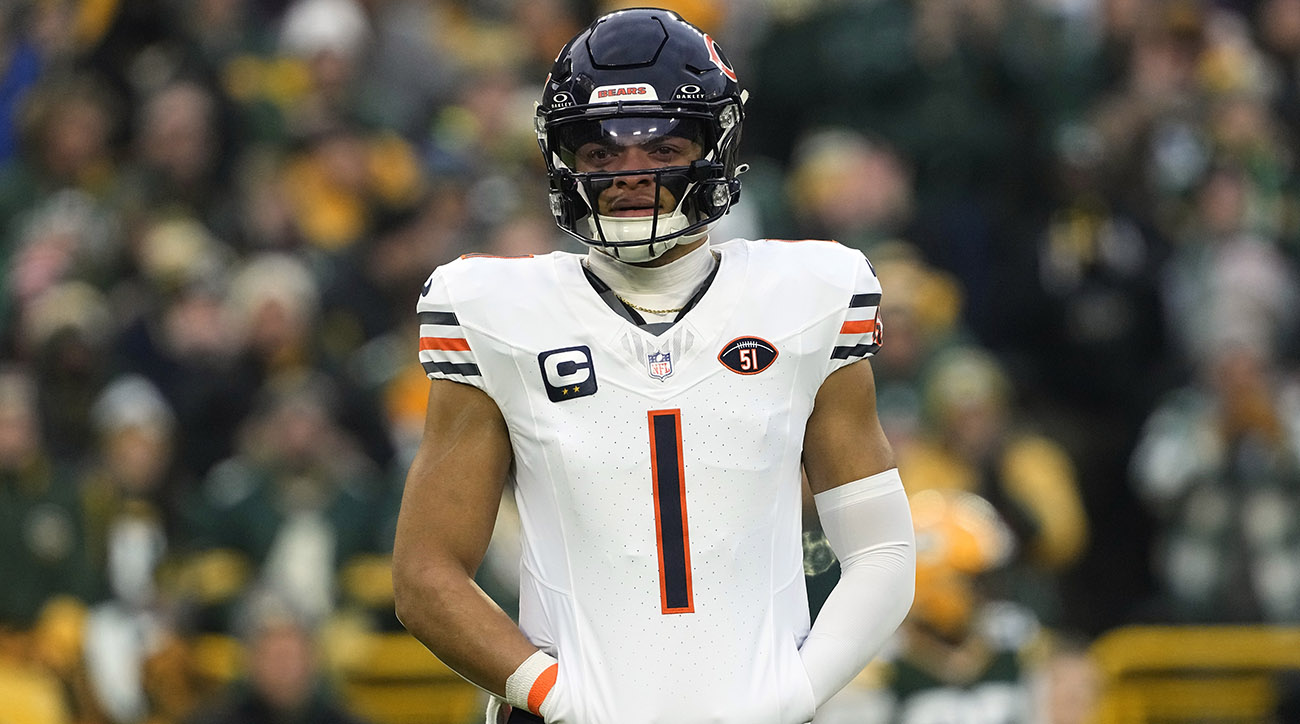
The Justin Fields era will be remembered for unfilled potential, partly because of the Chicago Bears’ poor mismanagement with building a productive surrounding.
Fields didn’t develop into a star quarterback and is now a backup for Russell Wilson in Pittsburgh. All the Bears got in return was a 2025 sixth-round pick, which becomes a fourth-rounder if Fields plays 51% of the snaps in ’24.
Fields deserves some blame for not making it work in Chicago because of inconsistent performances as a passer. But the dynamic athlete carried the team many times, despite poor surroundings. The Bears couldn’t even net a Day-2 pick for a player who has so much untapped potential and helped the team win four out of its final six games in 2023.
Chicago made the right decision to draft a quarterback with the No. 1 pick in next month’s draft, which will likely be USC’s Caleb Williams. They have also had a productive free agency with the trade for Keenan Allen, re-signing of Jaylon Johnson and the additions of D’Andre Swift and Gerald Everett.
But the Bears botched the Fields trade, waiting until the last minute of free agency to send him to the Steelers, a low-risk, high-reward acquisition for them. Chicago could have waited until training camp to wait for a QB-needy team to make a better offer for Fields. Instead, they took what they could get and didn’t make Fields wait—one of the rare times they did right by him.
Dolphins’ all-in approach backfires
The Miami Dolphins lost plenty of talent in free agency with the departures of Christian Wilkins, Robert Hunt and Van Ginkel.
They couldn’t afford to keep their top in-house free agents because of how aggressive they have been the past few seasons, including trading for Tyreek Hill, Jalen Ramsey and Bradley Chubb. All they have to show for this all-in approach are two wild-card losses the past two seasons and limited cap space.
Now the Dolphins’ roster is weaker and they no longer have the luxury of leaning on Tua Tagovailoa’s rookie contract—he’s due for a massive pay day this spring or summer.
The Dolphins took a few steps back, but they did make notable signings with cornerback Kendall Fuller, Jordyn Brooks and a few other players who might be on the back end of their careers. That’s probably not enough to beat the Bills in the AFC East.
